Nightclub over-serving tips with Trevor Estelle of Health Communications Inc. Presented at Expo/ED University – A “certification training seminar” on how to avoid over-serving your strip club guests. The seminar where Trevor Estelle offers over-serving tips was held at the 2019 Expo at Planet Hollywood in Las Vegas.
Did you know it is illegal to run a tab in Iowa? How about that Nebraska has a law that prohibits a bar from brewing beer unless it’s simultaneously brewing a kettle of soup?
And there’s this doozy: Texas has a law that prohibits taking more than three sips of beer at a time while standing.
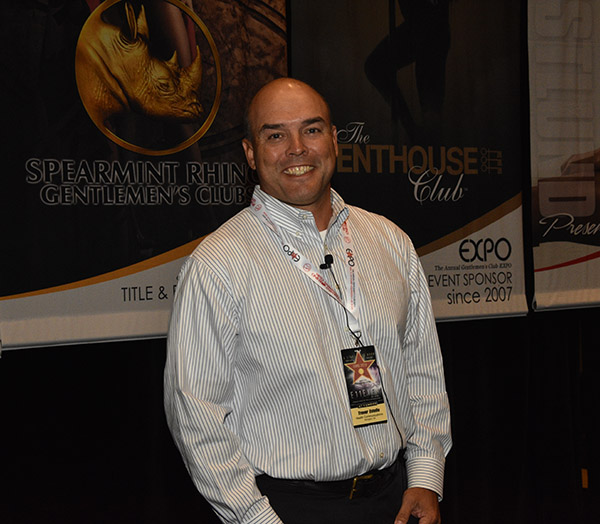
Trevor Estelle quizzed the audience at his Responsible Alcohol “Over-Serving” Class Certification at the Gentlemen’s Club EXPO before moving on to the more pertinent curriculum.
“Sound familiar?”
“There are some disturbing trends,” said Estelle, of Health Communications Inc (providers of the TIPS Alcohol Server and Seller Training Programs). “Liquor liability lawsuits are way up. I’m talking about civil lawsuits where if you’ve over-served someone and they go out on the road, hurt themselves or somebody else, you are liable as a licensee.”
Estelle also pointed to a growing neo-Prohibitionist movement, referencing Prohibition — the prevention by law of the manufacture and sale of alcohol in the US between 1920 and 1933.
For gentlemen’s clubs where alcohol is a major — if not the principal — source of income, the thought of a swell of Prohibtionist ground support is enough to send club owners/executives into cold sweats.
Estelle’s Strategy
Estelle discussed a case in Chicago where an alderman introduced a bill allowing for a $75,000 liquor license that could sell in clubs. The then-director of the Chicago Alliance Against Sexual Exploitation was made aware and issued the statement “It’s not the level of nudity that’s bothering us, it’s the introduction of alcohol. The public isn’t aware of what goes on in these clubs. We view alcohol in the clubs as making a bad situation worse.’”
“Does this sound familiar?” asked Estelle. “It sounds like a blue law (Ed.’s note: blue law if a law prohibiting certain activities). They’re using your liquor license like a tool to prevent clubs from coming into their communities. This may be something you’ve encountered many times.”
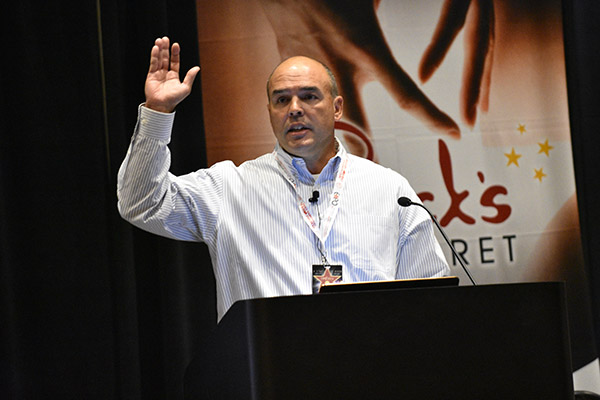
“There is a strategy that’s out there to prevent you guys from selling alcohol in your clubs,” Estelle cautioned. “It’s not just in Chicago, it’s not just in New York. Do a Google search and you’ll be able to find a lot of neo-Prohibitionist movements.
“This Prohibition movement is still going on today,” he continued. “Whether or not you realize it, there are subtle clues.”
.0…wait?
What is the legal level of intoxication in the US? If the number “.08” flashed across your mind (or .05 in applicable states), you are not alone.
As a matter of fact, there is no quantifiable level. The .08-blood-alcohol-content (BAC) level references the threshold in most states to meet charges for a DUI.
“You can’t serve someone that’s visibly intoxicated, but .08 has become the standard,” said Estelle. “In Utah, it’s .05. There are six other states that have proposed .05. This is going to have an effect on your customers. It’s going to affect customers’ behavior and what they’re doing in clubs and at home.”
As the threshold continues to sink, club owners might see a similar trajectory with their alcohol profits. All this renders alcohol server training that much more critical.
“Alcohol server training makes you more cognizant of customers, it really educates everyone as far as the alcohol service that’s out there,” said Estelle.
“The law expects us as servers, owners, managers, to make reasonable efforts. You being here today and getting the certificate of completion, that’s a reasonable effort.” – Trevor Estelle
Forty-two states have some sort of regulated alcohol server training with 19 states mandating it by law. The remaining 23 are “voluntary” states that can offer benefits (reduced fines, penalties) for going a through state agency-approved training.
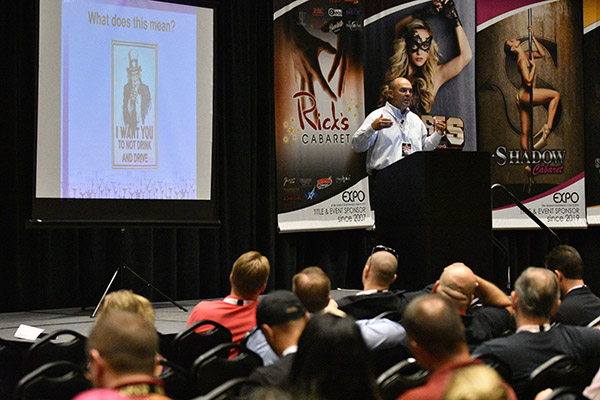
In 2021, California will make it mandatory for anyone with a liquor license to have alcohol-trained staff. “If you are in those states and you are investigating alcohol server training, do the right program,” said Estelle. “One big perk in going through alcohol server training program is you’re meeting state compliance.”
Looking for Signs
Estelle talked about how most club staff would know over intoxication by simple exposure.
“You go down the list of behavioral cues and you may not know what they’re called, but we’re all ‘people’ people so we know by being in the industry, we know what we’re encountering when we see someone that’s consuming alcohol,” he said. “It’s hard to go in, size someone up and figure out their BAC. It’s important to use these strategies when you’re probing a guest, serving a guest, talking to a guest to figure where they’re at. Tolerance is a tough thing. You have the guy that comes in and has three glasses of scotch each night and doesn’t show any effects and you have the guy that has three glasses and is on the floor.”
And while most bar staff would know intoxication rate factors — gender, size, type of alcohol, timing of drinks, food intake before or during, etc. — a certified training spells it out in more concrete definitions and provides peace of mind out of sheer due diligence.
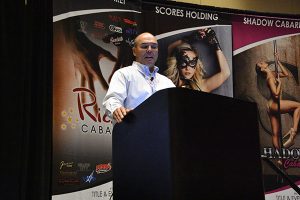
“We know when we’re serving alcohol, there probably isn’t an equivalency,” said Estelle after showing a chart comparing a “standard” shot, beer and glass of wine. “There’s beer, IPAs (India Pale Ale) that approach up to 12% ABV (alcohol-blood volume), we know there are wines that are very low (ABV). The ABV ranges all over the place. Knowing what you’re pouring and when you’re serving is a big part of making sure you can monitor your guest.”
Scared Sober
“The law expects us as servers, owners, managers, to make reasonable efforts,” Estelle said to crowd. “You being here today and getting the certificate of completion, that’s a reasonable effort.”
Clubs and any business that depends on alcohol sales will need every bit of ammunition as the lawsuits continue to mount.
“It’s not meant to scare you, but (lawsuits) are everywhere. You need to make these reasonable efforts to prevent these lawsuits from happening,” warned Estelle. “And even if you do make these reasonable efforts, is that going to prevent it from happening? Of course not. We live in a litigious society.”
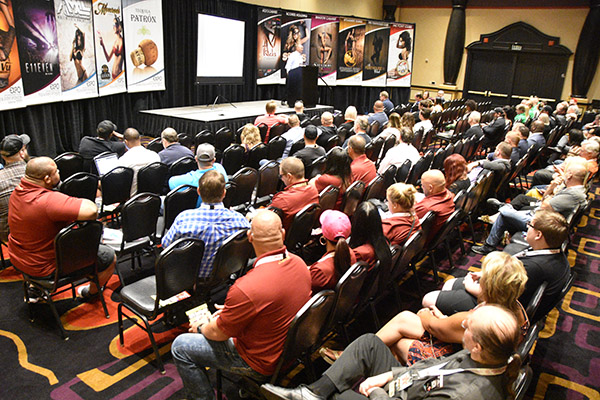
In combating over-serving, Estelle referenced TIPS’ intervention guidelines for when a patron is reaching or has crossed the point of acceptable inebriation.
“You may not be able to control the behavior of your guest, but you can control your response to the guest,” he said. “All of us can do that.”
Be Pro-Active n your training
Just like every club can receive some sort of alcohol training for staff — before it’s required.
“The number one benefit of alcohol server training is it’s going to prevent drunk driving, underage drinking and intoxication in your community,” Estelle said. “If you’re doing that in your community and that message is being received, it’s hard to argue with that. You’re selling a legal product and you’re doing the right thing.”
For more information, visit gettips.com. EXPO attendees get a discount on their TIPS training when they use ‘EXPO2019’ as a promotion code when registering to take eTIPS (https://www.gettips.com/
More coverage of the ED EXPO Certification from EXPO 2019




























